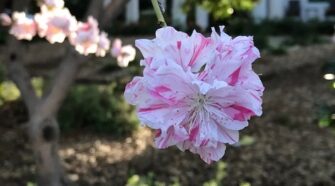天地不仁,以萬物為芻狗;
聖人不仁,以百姓為芻狗。
天地之間,其猶橐籥乎?
虛而不屈,動而愈出。
多言數窮,不如守中。
Nature is unkind: (Heaven and earth are unbiased)
It treats the creation like sacrificial straw-dogs.
The Sage is unkind: (The sage is not sentimental)
He treats the people like sacrificial straw-dogs.
How the universe is like a bellows!
Empty, yet it gives a supply that never fails;
The more it is worked, the more it brings forth.
By many words is wit exhausted.
Rather, therefore, hold to the core.
(Translated by Yu Tang Lin)
Note: The addition here in parentheses is to make the passage more understandable.
The original Chinese text is confusing. The direct translation of the first sentence – 天地不仁 – is “Nature is unkind.” In chapter 67, Lao Tze mentioned the three treasures, which he holds fast and watches closely – the first one is mercy. Therefore here it just implies that the heaven and earth are impartial or unbiased. The direct translation of the second sentence – 聖人不仁 – “The Sage is unkind” is also confusing. With the same principle, here we translate it to mean that the sage is not sentimental and has no preference. Both the sage and heaven and earth just follow the law of nature.
So here: Heaven and earth are unbiased, and because they treat everything like straw-dogs, they let it run its course. Similarly, saints are not sentimental; they have no preference, and also treat the people like the straw dog. Between heaven and earth, is it like a bellows? It is empty and not exhausted, the more you work, the more wind comes out, it is endless. It counts less if you use more words, as too much speech leads to mental silence. It is better to return to the core, that is to keep your mind quiet and empty.

Fire Bellows | Modern fireplace leather | UK
Here Lao Tzu uses two things to explain. The first thing is the straw dog which is used for sacrifice during prayer. Once the prayer ends, the straw is thrown away. It shows that both heaven, earth, and the saint have no bias, they only follow nature and treat the people equally, letting them go with the flow.
The second thing is the bellows. As long as we work on it, the wind will come out and never be exhausted. So the heaven and earth are like the bellows, it is empty but never exhausted and it is up to us to use it.




